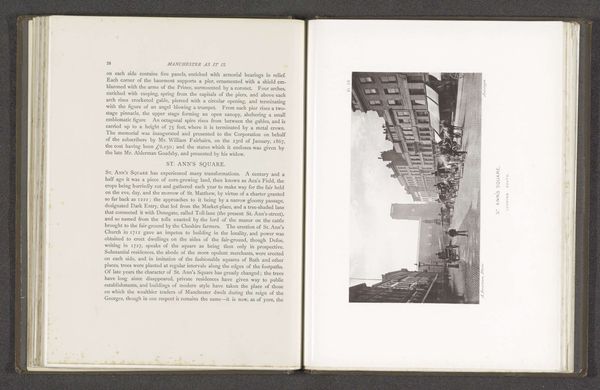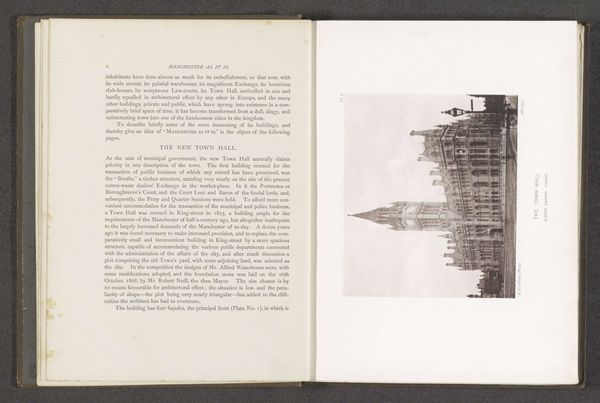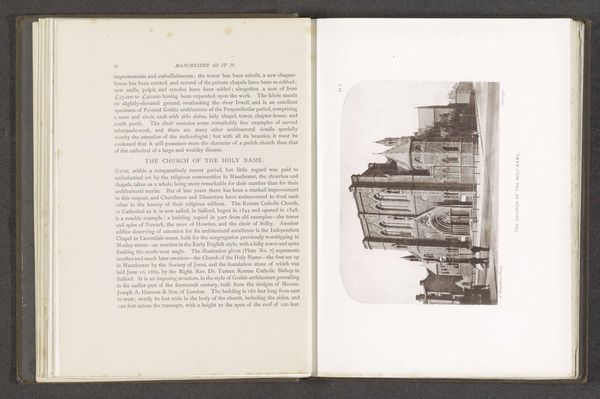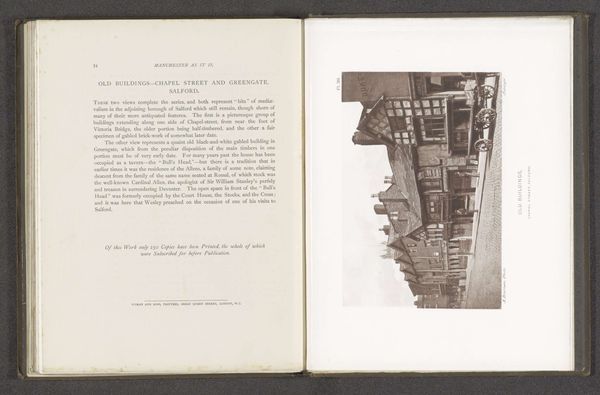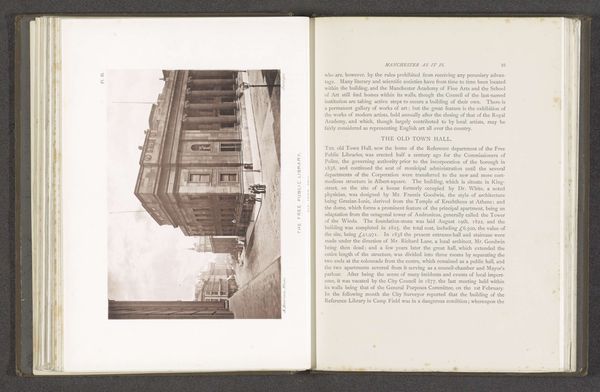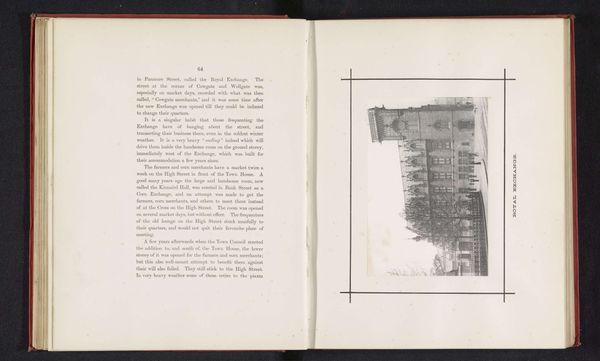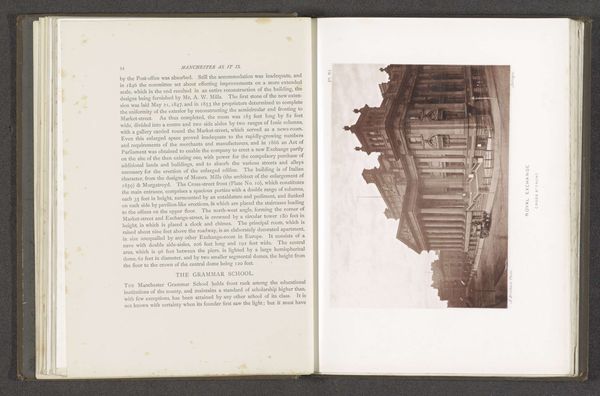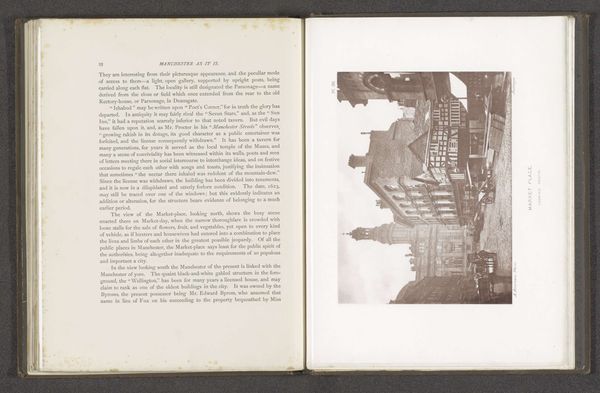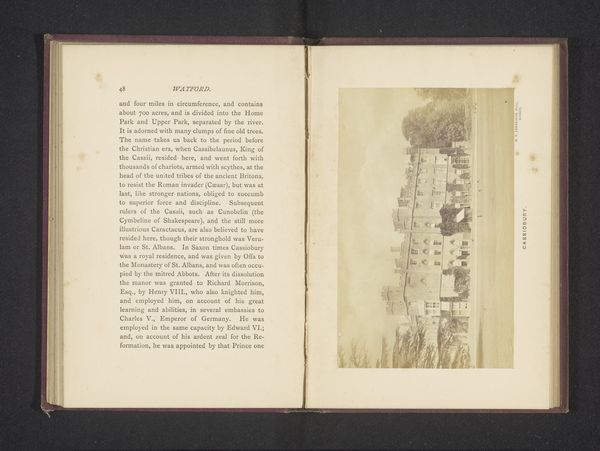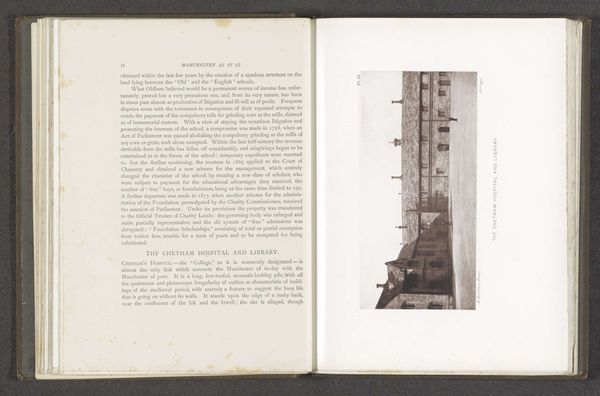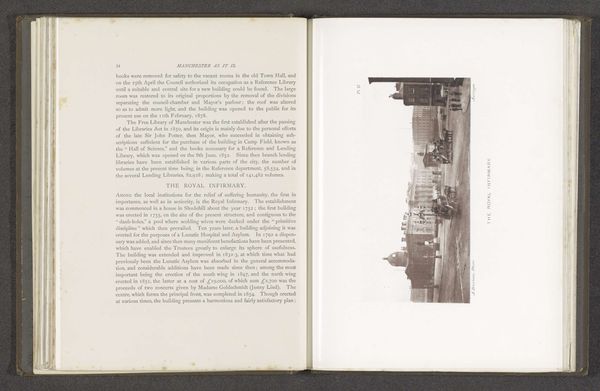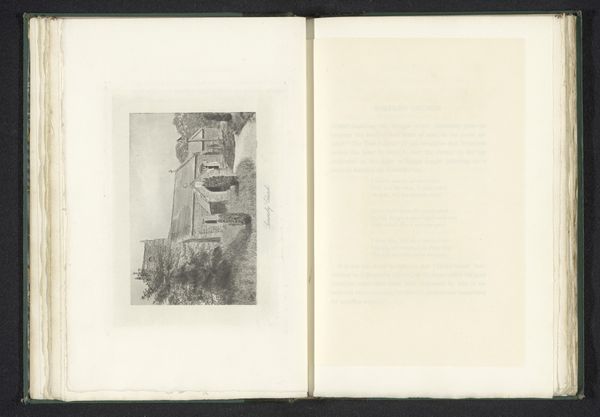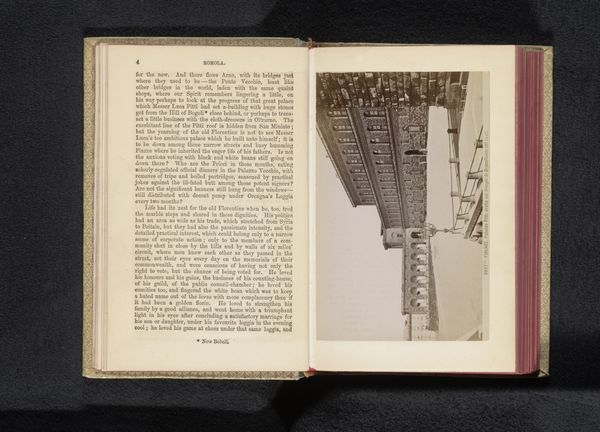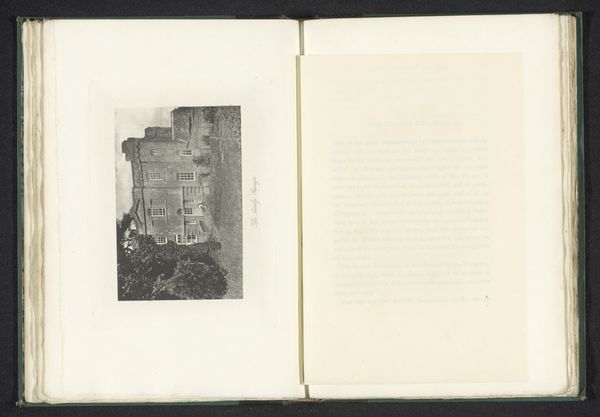
print, photography
# print
#
landscape
#
photography
#
cityscape
Dimensions: height 110 mm, width 190 mm
Copyright: Rijks Museum: Open Domain
Curator: Here we have a photograph titled "Gezicht op het Lancashire Independent College in Manchester," taken by Alfred Brothers before 1878. It appears to be a print, part of a book. Editor: It immediately evokes a sense of steadfastness. The college seems quite monumental, towering above its surroundings, but the angle feels oddly domestic—as if capturing it on a regular afternoon stroll through a city filled with the pollution of the time. Curator: Absolutely. Brothers masterfully uses light and shadow to emphasize the college's architectural details—notice the stark contrast between the building's facade and the soft blur of the trees in the foreground. There is also a focus on depth here—an interplay of textures. Editor: That tension feels central to the image's impact, doesn't it? I am particularly interested in situating the Lancashire Independent College within the context of Manchester's 19th-century development. It served a particular segment of society then. Can you share anything regarding the college's role at that time? Curator: Certainly. Founded for the education of students for the Christian ministry, the college represents the broader development of educational institutions during the Industrial Revolution, and such institutions would come to wield tremendous influence within the sphere of society and politics. Editor: And I wonder, as it was created at a particular juncture in that city's history, what impact the development of such institutions may have had for marginalized groups in Manchester, as its student body likely reflected gendered, raced, and classed imbalances of the time. The print feels laden with the city's burgeoning industrial complex as a whole. Curator: That’s an intriguing layer. The photographic process itself contributes to its semiotic significance. The monochrome tonality imparts a sense of gravity and historical distance. Editor: It certainly underscores how much history it holds. Viewing this now urges contemplation about our ever-evolving spaces and societies. Curator: Agreed. There is an indelible mark left from Manchester in those days to our modern era. The image makes the viewers ask about these kinds of institutions, the space for ministry, and the individuals at that time.
Comments
No comments
Be the first to comment and join the conversation on the ultimate creative platform.
